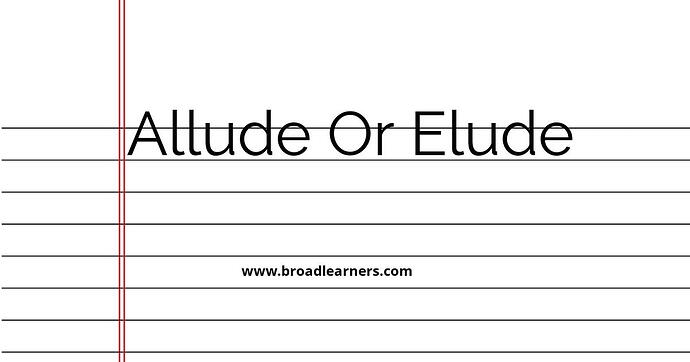'Allude' and 'elude' are commonly confused words in English grammar. Understanding the difference between 'allude' and 'elude' is important to use them correctly in written and spoken English.
'Allude' means to indirectly refer to or hint at something without explicitly stating it. It is used when someone wants to mention or suggest something without directly mentioning it.
'Elude' means to escape or evade something or someone, especially in a skillful or cunning manner. It is used when someone manages to avoid or evade capture or understanding.
Let's take a closer look at the meanings and usage of 'allude' and 'elude'.
| 'Allude' | 'Elude' |
|---|---|
| The word 'allude' is used to indirectly refer to or hint at something. | The word 'elude' is used to escape or evade something or someone. |
|
|
To remember the difference between 'allude' and 'elude', it can be helpful to think of 'allude' starting with the letter 'a', which stands for 'indirectly referring to', while 'elude' starts with the letter 'e', which stands for 'escaping or evading'.
Here are some examples of correct usage:
- The speaker alluded to a secret project during his speech.
- The criminal eluded the authorities for months before being captured.
- He carefully alluded to his upcoming surprise without giving away any details.
- The answer to the riddle eluded us; we couldn't figure it out.
Remembering the correct usage of 'allude' and 'elude' will improve your grammar and communication skills.
